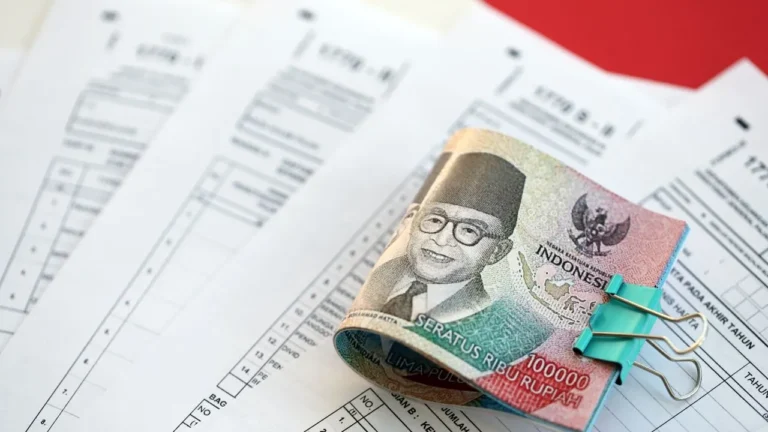Table of Contents
ToggleOver time, tangible forms of exchange, such as paper or coins, have gradually emerged as alternatives. Cryptocurrency, including crypto assets in Indonesia, is another modern form of transaction that is increasingly popular.
How does cryptocurrency work in Indonesia, and why is it taxable? Let’s explore these aspects step by step, focusing on the regulations and opportunities for crypto investors in the region.
What is Crypto Currency?
Generally speaking, cryptocurrencies are virtual currencies relating on the blockchain. Cryptography makes double-spending or counterfeiting of cryptocurrencies difficult.
Thus, even if it is utilized virtually, there is no risk of counterfeiting that could harm the owner. This security is achievable as crypto assets in Indonesia are centrally created on blockchain technology. Consequently, their operation is inherently digital-based, encrypted, and distributed, ensuring reliability and transparency in transactions.
Furthermore, in Indonesia, cryptocurrency is not yet a legal payment method.
This is in line with the clauses regarding currency usage in Indonesia specified in Law No. 7 of 2011. The Currency Law clearly states that the rupiah, the currency that the Indonesian government created, is the only acceptable form of payment in Indonesia.
Never worry about taxes and accounting again
Dealing with finances, taxes, and accounting can feel overwhelming, especially as a foreigner in Indonesia. Let us guide you through processes like tax calculation, payroll, personal or corporate tax, short-term investments, balance sheet analysis and much more.
With ILA by your side, nothing can go wrong. Schedule a free consultation today or learn more about our tax and accounting services.
Buying and Selling Crypto Assets?
Now, buying and selling crypto assets can be conducted through digital asset futures companies registered with BAPPEBTI (The Commodity Futures Trading Supervisory Agency). Some companies that facilitate crypto asset transactions are:
- Pintu
- Indodax
- Tokocrypto
- Bitocto
- Binance
Why Tax Crypto Assets?
For information, many people in many different countries now find income from crypto assets. The regulator is intending to include those assets under its scope.
Bappebti claims that imposing this crypto asset less tax is crucial since it can encourage investors—especially foreign investors—to join the crypto market in Indonesia.
The Commodity Futures Trading Supervisor Agency (Bappebti) observed that the Indonesian crypto investor count has risen. Domestic crypto investors in January 2024 were 18.83 million; in February, they grew to 19 million. As the number of crypto transactions increases, it becomes even more important to tax these assets to ensure fair regulation and revenue generation for the country.
Also read: How to Open a Bank Account in Indonesia for Foreigners (2024)
Tax Regulations for Crypto Assets

Officially, trading crypto assets in Indonesia is subject to taxes starting on May 1, 2022. PMK 68/PMK.03/2022 claims Value Added Tax (VAT) on the Distribution of Crypto Assets and Income Tax (PPh) on Income from Crypto Asset Sales Transactions.
The tax is applicable since crypto assets are commodities liable to VAT and add to the economic capacity of the taxpayer. Ensuring VAT compliance is crucial for individuals and businesses engaged in crypto trading to avoid legal issues and penalties.
Trading cryptocurrencies as commodities can only be done through businesses under the Ministry of Trade (Kemendag) using entities in relation with the Commodity Futures Trading Supervisor Agency (Bappebti).
Also read: Get to Know Countries with Double Taxation Treaty with Indonesia
Applicable Taxes
Meanwhile, crypto asset profits are under Income Tax (PPh) article 22 and Value Added Tax (VAT). The goal is to reduce the burden on taxpayers (WP), individuals, and businesses.
Tax Rate
| No | Transaction | Tax Collector | Tax Rates |
| 1 | Crypto Asset Trading:
|
VAT
Platform exchangers (PFAK) as another party collecting VAT (Article 32A of the Tax Harmonization Law) Income Tax Platform exchangers (PFAK), as another party collecting VAT, are not included in PPMSE, which only provides electronic wallet/e-wallet services. |
VAT:
0.11% VAT from the value of crypto assets registered with Bappebti 0.22% VAT from the value of crypto assets not registered with Bappebti Income Tax: 0.1% Final Income Tax (PPh 22) from the value of crypto assets registered with Bappebti 0.2% Final Income Tax (PPh 22) from the value of crypto assets not registered with Bappebti |
| 2 | Exchange/E-wallet Services
Electronic Wallet/Exchanger Services (trade, exchange, storage, and transfer services for crypto assets) |
VAT
VAT-registered Exchanger/e-wallet collects VAT on Exchanger/E-wallet services. Income Tax Exchanger (PPMSE) reports income in the income tax return (SPT PPh). |
|
| 3 | Mining Services
(verifying crypto asset transactions) |
VAT:
VAT-registered miners collect VAT on verification services. Income Tax:
|
VAT: Specific VAT rate = 1% of the token value on the fee and block reward received
Income Tax: Final Income Tax (Article 22) = 0.1% of income related to crypto assets |
Contact us
Understanding and complying with these tax requirements allows you to efficiently manage your investments and operations within Indonesia’s legal framework. For detailed guidance, you better call ILA.























